
[HOME ] [ABOUT] [PHOTOS] [VIDEO] [BLOG] [HOUSTON] [TEXAS] [U.S. NEWS] [WORLD NEWS] [SPORTS] [POP CULTURE] [CONTACT]
Why Italy has turned to crowdfunding to preserve its culture
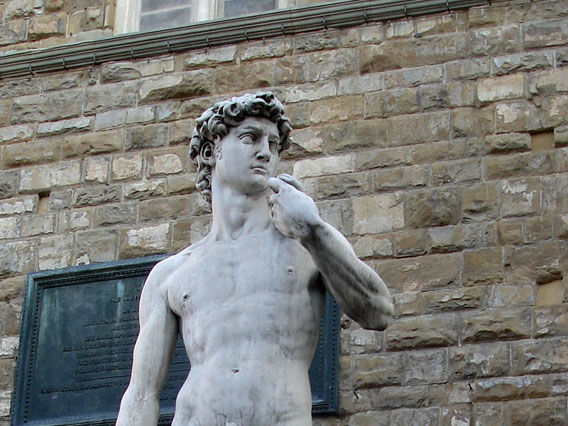
Michelangelo's David in Florence Italy—Photo by Joseph Earnest
by Joseph Earnest November 2, 2015
Newscast Media ROME—Cultural architectural treasures in Italy are crumbling because of a lack of funds to maintain them. New models are being developed to finance the restoration of these sites. Can crowdfunding save the country's heritage?
The model has worked for the ancient and sacred African Kingdom of Buganda where crowdfunding is called "Ettofaali" and Italy is turning to the same undertaking using the Web.
Fifteen years ago, to great fanfare, Rome's long buried Domus Aurea - the sumptuous Golden Palace of Emperor Nero - was opened to the public after some partial restoration.
Discovered in the Renaissance, major artists of the time squeezed through openings in the earth and lowered themselves by rope into the vast frescoed ruins to study the "grotte," or caves, as they believed them to be. Inspired by what they discovered in the underground palace, the masters, including Raffaele, infused this ancient style in their own works, further enriching Renaissance art.
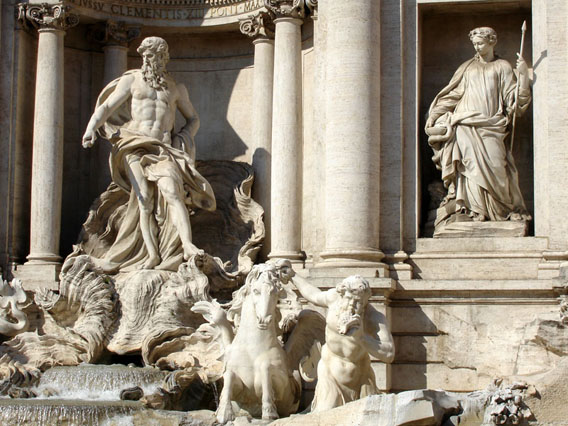
The grandiose Trevi Fountain in Rome—Photo by Joseph Earnest
Modern access to the sprawling complex, however, has been just as challenging and so far, less fruitful. Two years after the ancient palace was opened in 1999, authorities shut it again due to worries about structural stability. Then, in 2010, a large section of one of the vaulted galleries collapsed after rainfall.
Four years of work later, the place is now structurally sound and open to limited weekend tours. Tiny slices of its delicate frescos have been stripped of crystallization, calcium deposits, pollutant crusts, and biological growth to give a teaser of what splendors lie beneath.
All that's missing? A mere 30 million euros ($33 million).
It's a predicament that dozens of cultural sites throughout Italy are facing. As the country limps out of its recession, public funds for cultural restoration are stretched thin.
Yet some recent developments in the management of cultural funding in Italy could be the first positive rumblings in a seismic shift in how Italians view their responsibility towards their patrimony.
One is a new law, Art Bonus, aimed to encourage both individual and corporate patrons to invest in the restoration of cultural entities by offering a tax bonus equal to a deduction of 65% of their donation. The law also gives a 30% tax credit to tourist structures when they invest in renovation or updating.
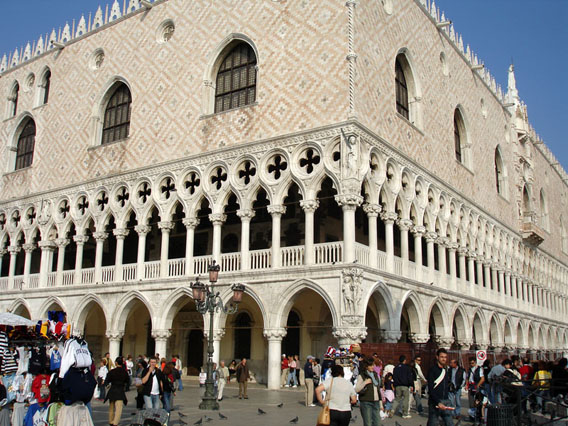
St. Mark's Basilica, Venice—Photo by Joseph Earnest
Spending on culture in Italy totals 1.2% of GDP compared with a European average of 2.2%. Yet the government says that in 2016, for the first time, the trend of shrinking spending on culture will reverse because of the Art Bonus.
"Bringing the culture of patronage here will take time," said Culture and Tourism Minister Dario Franceschini, while recently promoting the incentive. "But the results of Art bonus for Italy are absolutely positive, even extraordinary, especially given they were achieved in an experimental stage without a publicity campaign."
Yet without much fanfare, 34 million euros has been raised this year alone - a 20 percent increase from 2014 - with more than half of sites enlisted in the program benefitting from donations.
With the generous incentive set to be made permanent in November, Franceschini says large Italian corporations no longer have an excuse not to give back.
"Just like in other countries, I'd like major corporations to be evaluated by their social contribution, by what they do to enhance and protect our heritage in the way UNESCO describes it, as belonging to all of humanity and all of humanity having to contribute to it," Franceschini explained.
Franceschini applauds fresh initiatives that have come in the wake of Art Bonus such as upaperlacultura.org, Italy's first private, non-profit, free website that aims to bring together cultural institutions and businesses. Launched by a group of 500 advertising and communication companies, the site allows private companies to select a site to invest by geographical area or kind of offering.
A similar initiative with its sights set on tapping into foreign visitors is LoveItaly!, a new crowdfunding operation to support the country's patrimony through what founders call "a series of transparently managed projects to help the future of Italy."
"This country has the most extraordinary range of cultural heritage," says President Richard Hodges, also president of the American University of Rome, "but the Italian government still does not grasp how important this is to their economy."
Hodges points out that presently Italy earns just over half of what France brings in from tourism - about the same as Britain, yet with a far superior range of cultural sites and artifacts.
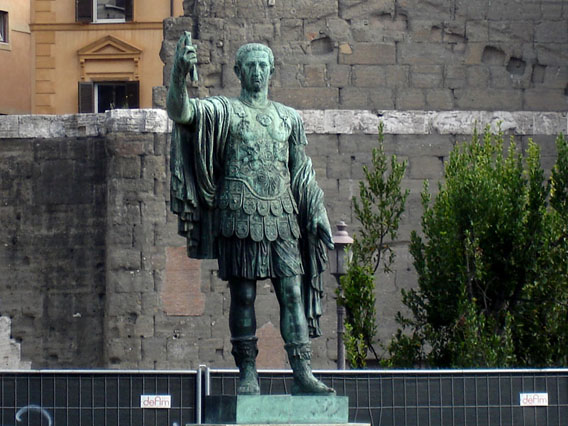
Julius Caeser, The Imperial Way, Rome —Photo by Joseph Earnest
LoveItaly! has begun to fund the restoration of small sarcophagus in Rome and The House of the Centaur, a pre-Roman habitation with the oldest frescos in Pompeii.
Fabio Galeandro, the young architect overseeing the Pompeii project, says the new crowdfunding formula is a no-lose proposal for sites like The House of the Centaur; if LoveItaly! is not able to raise its target of 53,000 euros for the restoration, the Pompeii cultural department has guaranteed it will cover the difference.
"What's exciting about the initiative," says Galeandro, "is that it gives private funding opportunities to support projects that urgently need to be restored and protected but that might not attract a lot of attention otherwise, like in this case, a small, but important part of Pompeii."
While the platform accepts donations as small as 2 euros, site founder American Tracy Roberts says it hopes to entice more generous offerings through incentives, a page Italians could lift from American-style fundraising.
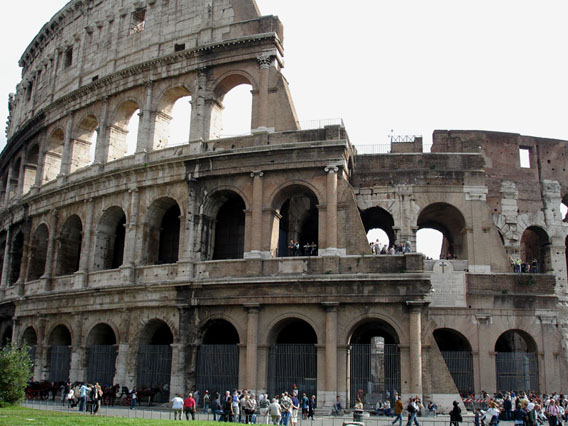
The legendary colosseum, in Rome—Photo by Joseph Earnest
"As in all crowd funding, you need rewards," says Roberts. "Bigger donors, for instance, will get invited to an aristocratic house for dinner together. We have agreements with luxury hotels. We know Italy, the territory and the people and we want people to be part of it."
And with any luck, before much of it crumbles. Add Comments>>
Source: Radio Deutsche Welle
|
|
Join the Newscast Media social networks
for current events and multimedia content.
Copyright© Newscast Media. All Rights Reserved. Terms and Privacy Policy
